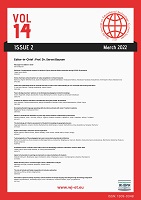Digital citizenship in education and its implication
Digital citizenship in education and its implication
Author(s): Reylan G. Capuno, Roberto L. Suson, Decem Suladay, Vivian Arnaiz, Imelda Villarin, Emelyn JungoySubject(s): Communication studies, School education, Health and medicine and law, ICT Information and Communications Technologies, Distance learning / e-learning
Published by: Birlesik Dunya Yenilik Arastirma ve Yayincilik Merkezi
Keywords: Digital citizenship; Basic Education; Digital education; Self-education; Responsible citizen;
Summary/Abstract: Nowadays, billions of people across the world communicate with one another using a variety of technological means. As a result of this connection, we now live in a digital world where people can learn, work, play, and socialize with ease. Likewise, educators of all skills levels may not understand how to use technology effectively. Hence, both students and teachers need to become a member of a digital citizenry. Findings revealed that in terms of the elements of digital citizenship, teachers are significantly higher than students. The results indicate that students are at risk in this digital environment along with the covid-19 pandemic. This critical aspect addresses the schools to provide initiative and integrate digital citizenship in the curriculum in order to provide a responsible digital citizen.
Journal: World Journal on Educational Technology: Current Issues
- Issue Year: 14/2022
- Issue No: 2
- Page Range: 426-437
- Page Count: 12
- Language: English

